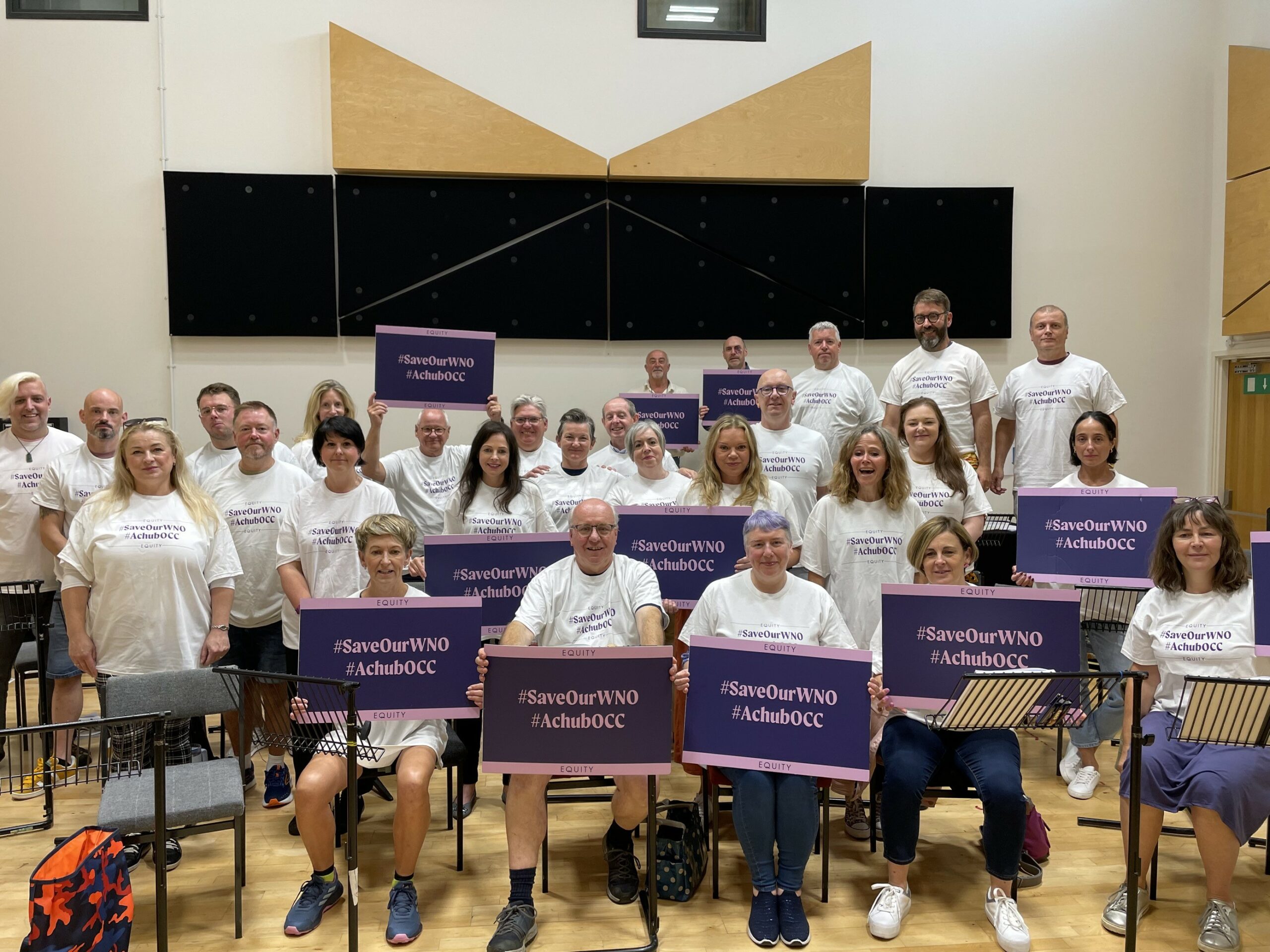
Photo: Equity
Welsh National Opera chorus votes in favour of industrial action
Members of the 30-strong chorus have joined their colleagues in the WNO orchestra in voting for industrial action over proposed pay cuts and contract changes.
Welsh National Opera's chorus has voted in favour of strike action over jobs and pay.
The singers, who belong to the arts and performance union Equity, will take "action short of strike"- when employees continue to work but withdraw some of their labour – later this month.
The result follows a separate Musicians’ Union ballot in July which saw members of WNO’s 42-strong orchestra also vote for action short of strike.
READ MORE:
- WNO musicians vote ‘overwhelmingly’ for strike action
- Welsh National Opera warned of possible funding loss over ACE criticism
The turnout for the chorus ballot was 100%, with 93% voting in favour of industrial action. All of the 30-strong chorus are Equity members.
The ballot stems from proposed changes to contracts as a cost-saving measure, due to a reduction in WNO funding.
Arts Council England (ACE) reduced its grant by 35%, from £6.24m to £4m a year for the 2023-26 period.
It subsequently granted WNO an additional £3.25m through its Transform programme to help it adapt to lower funding levels.
The company also receives £4.1m a year from Arts Council of Wales, but has said this figure represents an 11.8% cut against its application for standstill funding for 2024/25.
Meaningful talks
Equity said it wants “meaningful” talks with management in order to avoid strike action disrupting upcoming performances.
The union said that chorus members are facing “at least a 15% cut to their pay”, as well as a reduction in contracted hours and a cut to the overall number of chorus members.
It added that compulsory redundancies are also a “real threat”.
Paul W Fleming, Equity General Secretary, said the ballot result was a “resounding vote of no confidence in Welsh National Opera management and shows that chorus members will not take their disastrous cuts”.
He added that WNO needs to “engage in a process which protects the full-time status of our members and recognises the huge value this highly skilled workforce bring to the reputation of the company and to its work”.
Claire Hampton, a soprano who has been in the WNO chorus for 22 years, said: “This was not an easy decision for any of us to take, but we have been left with no choice as we face the devastating impact that proposed changes will have on our income.
"If management are unwilling to negotiate an improved offer, we are committed to taking action to protect our jobs.
“This disruption can be avoided by meeting our simple and achievable demands for a full-time contract, fair treatment, adequate resources and respect for the work that we do.”
Orchestra action
On 21 September, members of the WNO orchestra will be leafleting the audience on their way in to the opening night performance of Rigoletto.
The opera is directed by Adele Thomas, who will be taking office as Co-General Director and Co-CEO alongside Sarah Crabtree in January 2025.
The orchestra members will also be wearing campaign t-shirts during the performance, instead of their usual concert dress.
MU General Secretary, Naomi Pohl, said: “Our members don’t take industrial action of any kind lightly.
"They are motivated by the inevitable impact of management’s proposals on Welsh culture and audiences and the loss of opportunity for freelance musicians, as well as the personal impact of the proposed reduction in their hours and pay."
MU Regional Organiser for Wales and South West England, Andy Warnock, added: "MU members won’t sit by while musical opportunities for audiences, musicians and young people vanish.
"There is still time for the Wales and UK governments to step in and provide the additional support that's needed to protect WNO as a national cultural asset, and we hope they will do so."
Join the Discussion
You must be logged in to post a comment.